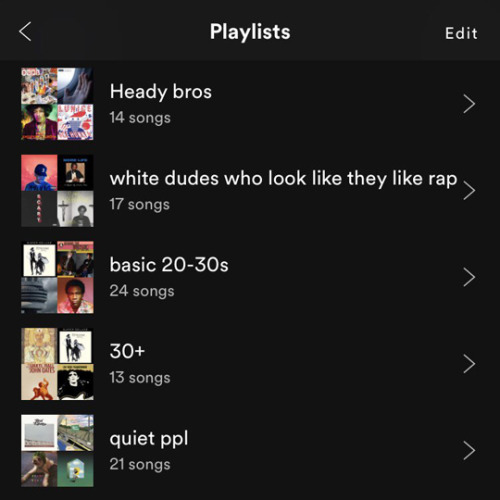Blog Posts Masterlist
Blog Posts Masterlist
Here are all the blogs I've written sorted according to six categories.
Getting Published/Querying:
How To Get Published As A Minor—A Step-By-Step Guide
How To Get Out Of The Slush Pile And Make Your Agent Say Yes
How To Answer Some Common Literary Agent Questions
Editing:
Ten Dos And Don'ts Of Worldbuilding
How To Name Your Characters
How To Hook Your Readers With Your Chapter's Starting And Ending
How To Write And Create A Sub Plot
How To Immerse Your Readers With Indirect Characterisation
Genre-Based Advice:
How To Build A Realistic Magic System
How To Get Away With Murder...As An Author
How To Get Away With Murder Part Two: Writing Murder Mysteries
How To Build Tension And Make Your Readers Feel Scared
Character-Based Advice:
How To Write POC Characters Without Seeming Racist
How To Write An Antagonist
How To Create Realistic Book Characters
How To Write Mythical Creatures Without Sounding Redundant
How To Write A Compelling Character Arc
How To Create A Morally Grey Character
How To Write A Disabled Character: Ten Dos And Don'ts
How To Write A Plot Device Character
How To Develop A Memorable Antagonist
How To Write And Research Mental Illnesses
Scene-Based Advice:
How To Build Tension And Make Your Readers Feel Scared
Four Tips On How To Make Your Plot Twist Work
How To Set The Scene Without Info Dumping
How To Accurately Describe Pain In Writing
How To Create A Well-Written Fight Scene
Writing A Creepy Setting: Tips And Examples
The Ultimate Guide To Writing Persuasive Arguments
Forgining Epic Battles: Techniques For Writing Gripping War Scenes
Recommendations:
Websites And Writing Apps Every Author Needs in 2023
Seven Blogs You Need To Read As An Author
More Posts from Agent-ishiguro and Others
this is almost certainly a post ive made before but when a character's grief is so strong it fully alters the form of the narrative itself... moby dick being so much longer than strictly necessary because ishmael's grief made him stall for time in the telling of the tragedy... harrow the ninth being in second person because harrow was so grief-stricken that she herself was not capable of making narrative sense of the events of the novel and so someone else had to do it.... do u know what i mean
Words to replace said, except this actually helps
I got pretty fed up with looking for words to replace said because they weren’t sorted in a way I could easily use/find them for the right time. So I did some myself.
IN RESPONSE TO Acknowledged Answered Protested
INPUT/JOIN CONVERSATION/ASK Added Implored Inquired Insisted Proposed Queried Questioned Recommended Testified
GUILTY/RELUCTANCE/SORRY Admitted Apologized Conceded Confessed Professed
FOR SOMEONE ELSE Advised Criticized Suggested
JUST CHECKING Affirmed Agreed Alleged Confirmed
LOUD Announced Chanted Crowed
LEWD/CUTE/SECRET SPY FEEL Appealed Disclosed Moaned
ANGRY FUCK OFF MATE WANNA FIGHT Argued Barked Challenged Cursed Fumed Growled Hissed Roared Swore
SMARTASS Articulated Asserted Assured Avowed Claimed Commanded Cross-examined Demanded Digressed Directed Foretold Instructed Interrupted Predicted Proclaimed Quoted Theorized
ASSHOLE Bellowed Boasted Bragged
NERVOUS TRAINWRECK Babbled Bawled Mumbled Sputtered Stammered Stuttered
SUAVE MOTHERFUCKER Bargained Divulged Disclosed Exhorted
FIRST OFF Began
LASTLY Concluded Concurred
WEAK PUSY Begged Blurted Complained Cried Faltered Fretted
HAPPY/LOL Cajoled Exclaimed Gushed Jested Joked Laughed
WEIRDLY HAPPY/EXCITED Extolled Jabbered Raved
BRUH, CHILL Cautioned Warned
ACTUALLY, YOU’RE WRONG Chided Contended Corrected Countered Debated Elaborated Objected Ranted Retorted
CHILL SAVAGE Commented Continued Observed Surmised
LISTEN BUDDY Enunciated Explained Elaborated Hinted Implied Lectured Reiterated Recited Reminded Stressed
BRUH I NEED U AND U NEED ME Confided Offered Urged
FINE Consented Decided
TOO EMO FULL OF EMOTIONS Croaked Lamented Pledged Sobbed Sympathized Wailed Whimpered
JUST SAYING Declared Decreed Mentioned Noted Pointed out Postulated Speculated Stated Told Vouched
WASN’T ME Denied Lied
EVIL SMARTASS Dictated Equivocated Ordered Reprimanded Threatened
BORED Droned Sighed
SHHHH IT’S QUIET TIME Echoed Mumbled Murmured Muttered Uttered Whispered
DRAMA QUEEN Exaggerated Panted Pleaded Prayed Preached
OH SHIT Gasped Marveled Screamed Screeched Shouted Shrieked Yelped Yelled
ANNOYED Grumbled Grunted Jeered Quipped Scolded Snapped Snarled Sneered
ANNOYING Nagged
I DON’T REALLY CARE BUT WHATEVER Guessed Ventured
I’M DRUNK OR JUST BEING WEIRDLY EXPRESSIVE FOR A POINT/SARCASM Hooted Howled Yowled
I WONDER Pondered Voiced Wondered
OH, YEAH, WHOOPS Recalled Recited Remembered
SURPRISE BITCH Revealed
IT SEEMS FAKE BUT OKAY/HA ACTUALLY FUNNY BUT I DON’T WANT TO LAUGH OUT LOUD Scoffed Snickered Snorted
BITCHY Tattled Taunted Teased
Hello, I am writing a book where rather than having one main character/protagonist there is multiple characters that are sort of 'focused' on in third person. I have been looking into this for some time and many resources simply say 'your main character' and I struggle with what I am meant to do if I have more than one character. Am I searching for the wrong things here? Have I bitten off more than I can chew and do you have any resources for writing more than one MC?
Balancing multiple main characters...
The key to this balance is smooth transition and a balance of “screen time”. The story lines must be evenly balanced and prioritized in the actual text and the overall plot/conflict.
It’s definitely challenging to incorporate multiple focus characters and storylines, but it’s not impossible. It’s more time you’ll have to spend on character development, and then weaving the plots together in a way that feels balanced and purposeful. This can be as simple as utilizing format, and as complex as jumbling all of the separate conflicts and background noises together without pulling the reader in a million different directions.
I have a few resources you may find helpful as you go along, but the overall piece of advice I have on this is to focus on an even distribution of time, energy, and care into each character and their own stories, and then make sure it all fits nicely by the end.
How To Fit Character Development Into Your Story
Giving Characters Distinct Voices in Dialogue
Tips on Character Consistency
Resources For Plot Development
Guide To Plot Development
Tackling Subplots
Plot Structures
Pacing Appropriately
Tips on Introducing Backstory
What To Cut Out of Your Story
Tips on Balancing Development
–
Masterlist | WIP Blog
If you enjoy my blog and wish for it to continue being updated frequently and for me to continue putting my energy toward answering your questions, please consider Buying Me A Coffee, or pledging your support on Patreon, where I offer early access and exclusive benefits for only $5/month.
ok but like when did self-sacrifice become synonymous with death? writers seem to have forgotten that people can make personal sacrifices for the greater good without giving their lives. plots about self-sacrifice and selflessness don’t always have to end in death. suffering doesn’t have to be mourning. you can create drama and emotional depth on your show without killing everyone. learn to explore the meaning of living rather than dying
articles and essays I keep coming back to:
“joy” by zadie smith (about, well, joy)
“roaming the greenwood” by colm tóibín (ostensibly a book review of the history of gay literature but actually just very incisive thoughts on…the history of gay literature)
“the murder of leo tolstoy” by elif batuman (about exactly what it says in the title)
“the love that dare not squeak its name” by david rakoff (about, i swear to god, stuart little)
a room of one’s own by virginia woolf (I mean, you know)
the entire lingua franca archive but in particular “bio hazard” by fred kaplan (about writing a biography of gore vidal) and “the stand” by daniel mendelsohn (about the role of a philosopher (martha nussbaum love of my life) in a colorado gay rights case in the 90s)
“the professor of parody” by martha nussbaum (about judith butler)
I want more stories that explore the angst potential of unrequited platonic love.
Like:
‘You’ve always been like a brother to me but I’ve realised you only come to me when you want something’
‘My surrogate parental figure just sees me as another student/employee/lackey’
‘I raised you like my own child but you don’t even remember who I am’
And of course, the classic ‘You’re my best (and only) friend but I know I’m only one of yours’.
One thing I like about Pixar films is how the happy ending isn’t always what you think it’ll be. The toys don’t go with Andy to college, Gusteau’s restaurant gets closed down, Mike and Sully get kicked out of university, Carl never gets Ellie to Paradise Falls. But they find out that what they wanted isn’t necessarily what they needed, and I really like the fact that kids get to learn that life doesn’t always turn out the way they dreamed and that’s okay.
Ways to un-stick a stuck story
Do an outline, whatever way works best. Get yourself out of the word soup and know where the story is headed.
Conflicts and obstacles. Hurt the protagonist, put things in their way, this keeps the story interesting. An easy journey makes the story boring and boring is hard to write.
Change the POV. Sometimes all it takes to untangle a knotted story is to look at it through different eyes, be it through the sidekick, the antagonist, a minor character, whatever.
Know the characters. You can’t write a story if the characters are strangers to you. Know their likes, dislikes, fears, and most importantly, their motivation. This makes the path clearer.
Fill in holes. Writing doesn’t have to be linear; you can always go back and fill in plotholes, and add content and context.
Have flashbacks, hallucinations, dream sequences or foreshadowing events. These stir the story up, deviations from the expected course add a feeling of urgency and uncertainty to the narrative.
Introduce a new mystery. If there’s something that just doesn’t add up, a big question mark, the story becomes more compelling. Beware: this can also cause you to sink further into the mire.
Take something from your protagonist. A weapon, asset, ally or loved one. Force him to operate without it, it can reinvigorate a stale story.
Twists and betrayal. Maybe someone isn’t who they say they are or the protagonist is betrayed by someone he thought he could trust. This can shake the story up and get it rolling again.
Secrets. If someone has a deep, dark secret that they’re forced to lie about, it’s a good way to stir up some fresh conflict. New lies to cover up the old ones, the secret being revealed, and all the resulting chaos.
Kill someone. Make a character death that is productive to the plot, but not “just because”. If done well, it affects all the characters, stirs up the story and gets it moving.
Ill-advised character actions. Tension is created when a character we love does something we hate. Identify the thing the readers don’t want to happen, then engineer it so it happens worse than they imagined.
Create cliff-hangers. Keep the readers’ attention by putting the characters into new problems and make them wait for you to write your way out of it. This challenge can really bring out your creativity.
Raise the stakes. Make the consequences of failure worse, make the journey harder. Suddenly the protagonist’s goal is more than he expected, or he has to make an important choice.
Make the hero active. You can’t always wait for external influences on the characters, sometimes you have to make the hero take actions himself. Not necessarily to be successful, but active and complicit in the narrative.
Different threat levels. Make the conflicts on a physical level (“I’m about to be killed by a demon”), an emotional level (“But that demon was my true love”) and a philosophical level (“If I’m forced to kill my true love before they kill me, how can love ever succeed in the face of evil?”).
Figure out an ending. If you know where the story is going to end, it helps get the ball rolling towards that end, even if it’s not the same ending that you actually end up writing.
What if? What if the hero kills the antagonist now, gets captured, or goes insane? When you write down different questions like these, the answer to how to continue the story will present itself.
Start fresh or skip ahead. Delete the last five thousand words and try again. It’s terrifying at first, but frees you up for a fresh start to find a proper path. Or you can skip the part that’s putting you on edge – forget about that fidgety crap, you can do it later – and write the next scene. Whatever was in-between will come with time.
overgrown ruins are great and all but you know what really goes hard? overgrown ruins partially or entirely submerged underwater
-
 shir0momo reblogged this · 3 weeks ago
shir0momo reblogged this · 3 weeks ago -
 ass-o-clockinthemorning liked this · 3 weeks ago
ass-o-clockinthemorning liked this · 3 weeks ago -
 nowanddyn liked this · 1 month ago
nowanddyn liked this · 1 month ago -
 feenian reblogged this · 1 month ago
feenian reblogged this · 1 month ago -
 sarytta42 liked this · 1 month ago
sarytta42 liked this · 1 month ago -
 beowl reblogged this · 1 month ago
beowl reblogged this · 1 month ago -
 beowl liked this · 1 month ago
beowl liked this · 1 month ago -
 anbu-fox liked this · 1 month ago
anbu-fox liked this · 1 month ago -
 newdawnhorizon reblogged this · 1 month ago
newdawnhorizon reblogged this · 1 month ago -
 shaisuki liked this · 1 month ago
shaisuki liked this · 1 month ago -
 ottjhe liked this · 1 month ago
ottjhe liked this · 1 month ago -
 zephyr1one liked this · 1 month ago
zephyr1one liked this · 1 month ago -
 starorchidmoth liked this · 1 month ago
starorchidmoth liked this · 1 month ago -
 bruisied liked this · 1 month ago
bruisied liked this · 1 month ago -
 cherrydafox liked this · 1 month ago
cherrydafox liked this · 1 month ago -
 poppylikes reblogged this · 1 month ago
poppylikes reblogged this · 1 month ago -
 poppyandcarnation liked this · 1 month ago
poppyandcarnation liked this · 1 month ago -
 hauntedism liked this · 1 month ago
hauntedism liked this · 1 month ago -
 chefboyroui liked this · 1 month ago
chefboyroui liked this · 1 month ago -
 iiseul3y liked this · 1 month ago
iiseul3y liked this · 1 month ago -
 bts-exo-always liked this · 1 month ago
bts-exo-always liked this · 1 month ago -
 xx-leech liked this · 1 month ago
xx-leech liked this · 1 month ago -
 dragonfox06 liked this · 1 month ago
dragonfox06 liked this · 1 month ago -
 ofstarsandmagic reblogged this · 1 month ago
ofstarsandmagic reblogged this · 1 month ago -
 weasel-words reblogged this · 1 month ago
weasel-words reblogged this · 1 month ago -
 tiredafel reblogged this · 2 months ago
tiredafel reblogged this · 2 months ago -
 lllostbythemoon liked this · 2 months ago
lllostbythemoon liked this · 2 months ago -
 octtavo reblogged this · 2 months ago
octtavo reblogged this · 2 months ago -
 b0nnerin0 liked this · 2 months ago
b0nnerin0 liked this · 2 months ago -
 caleism-1 reblogged this · 2 months ago
caleism-1 reblogged this · 2 months ago -
 caleism-1 reblogged this · 2 months ago
caleism-1 reblogged this · 2 months ago -
 caleism-1 liked this · 2 months ago
caleism-1 liked this · 2 months ago -
 datora reblogged this · 2 months ago
datora reblogged this · 2 months ago -
 aithxsa liked this · 2 months ago
aithxsa liked this · 2 months ago -
 theseviciousfelonies liked this · 2 months ago
theseviciousfelonies liked this · 2 months ago -
 wynters-writings liked this · 3 months ago
wynters-writings liked this · 3 months ago -
 pinhaum liked this · 3 months ago
pinhaum liked this · 3 months ago -
 lightbluefog liked this · 3 months ago
lightbluefog liked this · 3 months ago -
 kyliesnewbsf liked this · 3 months ago
kyliesnewbsf liked this · 3 months ago -
 notlapras reblogged this · 3 months ago
notlapras reblogged this · 3 months ago -
 runevataha liked this · 3 months ago
runevataha liked this · 3 months ago -
 coffeecupresearchmode reblogged this · 3 months ago
coffeecupresearchmode reblogged this · 3 months ago -
 brightshaw-shipper liked this · 3 months ago
brightshaw-shipper liked this · 3 months ago -
 colorfulpuppychaos liked this · 3 months ago
colorfulpuppychaos liked this · 3 months ago -
 sugarfulwitch liked this · 3 months ago
sugarfulwitch liked this · 3 months ago -
 ribbonsncherries liked this · 4 months ago
ribbonsncherries liked this · 4 months ago
things that might inspire me or help with with my writing skills
55 posts


